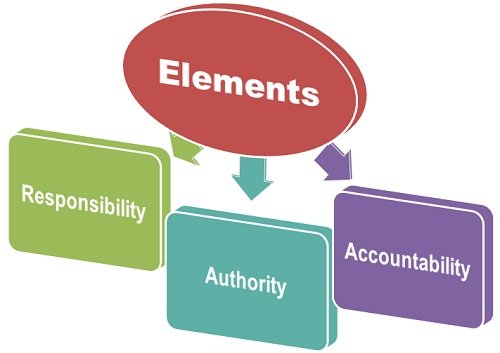How to make Delegation effective
A delegation of authority means granting or conferring or transferring or passing of authority to one person to another. It greatly reduces the burden of the top management, so that they can concentrate on the important activities. A delegation of authority eliminates the delay if subordinates are given authority to take decisions. The general outcome of the delegation of authority is better decisions. The subordinates are well known about certain things and they know facts and problems very well than their superiors so that they can take better decisions than their superiors. Delegation enables the employees to develop their capabilities when subordinates are given independent assignments. It increases the confidence and acts as a motivator to achieve the desired goals.

Nature of Delegation of Authority
It gives direction to the managers to perform duties to reach the desired goals.
It can be modified even after the action is performed.
The manager cannot delegate authority which he does not possess.
It is an art rather than science.

Principles of Delegation

Defining assignment
Every person’s position should be properly defined and the results expected from them should be clear. Communicating the expected performance removes all the doubts regarding the work they have to do.
Proper communication
The effective and free flow of communication between delegator and delegate is essential to reach the goals. During the delegation of authority, two-way communications are essential to remove all errors while they are performing the tasks.
Selection of a person
The selection of a person to delegate the authority should be fair. An only right person should be selected to get the desired output. Otherwise, the employee may get demotivated and it may lead to continuous errors in the work, so that all the efforts and time may become useless.
Proper motivation
For the success of the delegation process proper motivation is necessary. Motivation through incentives, recognition and support make the subordinates accept the responsibilities.
Unity of command
Unity of command indicates that the subordinate should receive commands, orders and instructions from one superior only. If they receive commands from more than one superior, it may lead to communication gap and employees may get confused to perform the task properly.
Limits of authority
Superior cannot delegate all the authority to their subordinates as they are finally responsible for the success or failure. So that before delegating the authority employees should be given proper training and inputs to fulfill the desired objectives successfully.
Absoluteness of responsibility
If the superior holds the responsibility though they delegate it to their subordinates, then the responsibility of subordinates to their superiors is absolute.
Steps in delegation of authority
Determination of expected results
Assignment of duties
Granting Authority
Inadequate information and resources
Determination of expected results
All the delegators must define the expected results from the delegate. So that delegator is in a position to decide till which extent the authority should be delegated. The authority must be sufficient to achieve desired results if the authority is not sufficient the expected results cannot be achieved.
Assignment of Duties
The second step in the delegation of authority is the assignment of duties to each and every subordinate. This step involves, the superior asks the subordinate to perform a particular task in a given period of time. Duties can be described in two ways,
In terms of activity or set of activities
In terms of expected results
Granting Authority
Assignment of duties is meaningless unless adequate authority is given to the subordinates. Until granting authorities, subordinates cannot commit or make use of resources and take decisions.
Inadequate information and resources
Subordinates may avoid higher responsibilities and authorities due to non-availability of sufficient information and resources. So, the superiors should make sure that the subordinates are provided with all necessary information.
Problems in Delegation of Authority
Fear of loss of power
Avoidance of work
Lack of confidence in subordinates
Autocratic style
Fear of misuse of authority
Over confidence of the superiors




